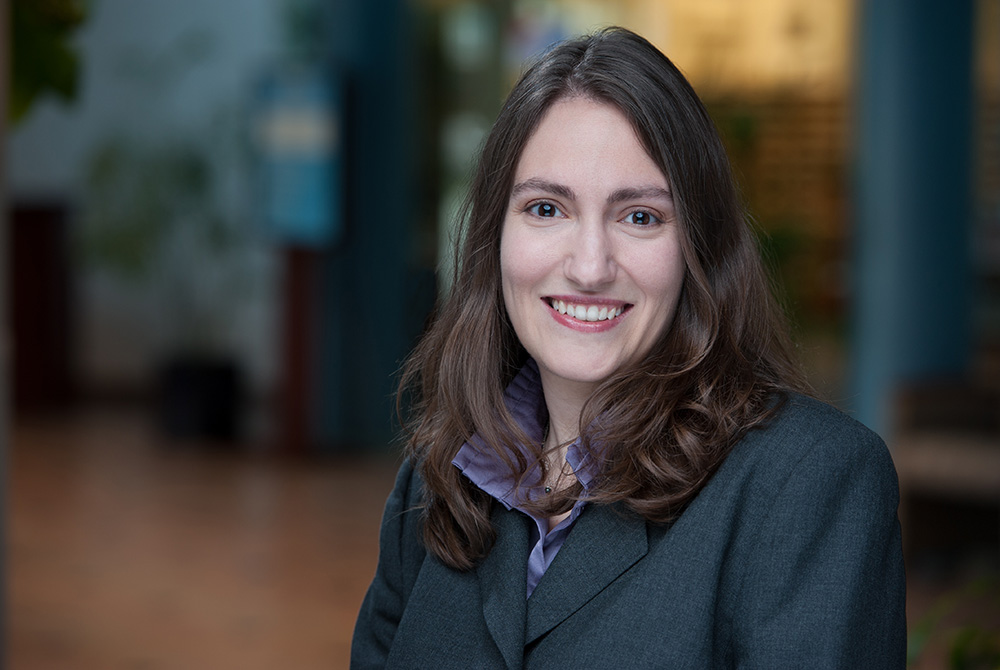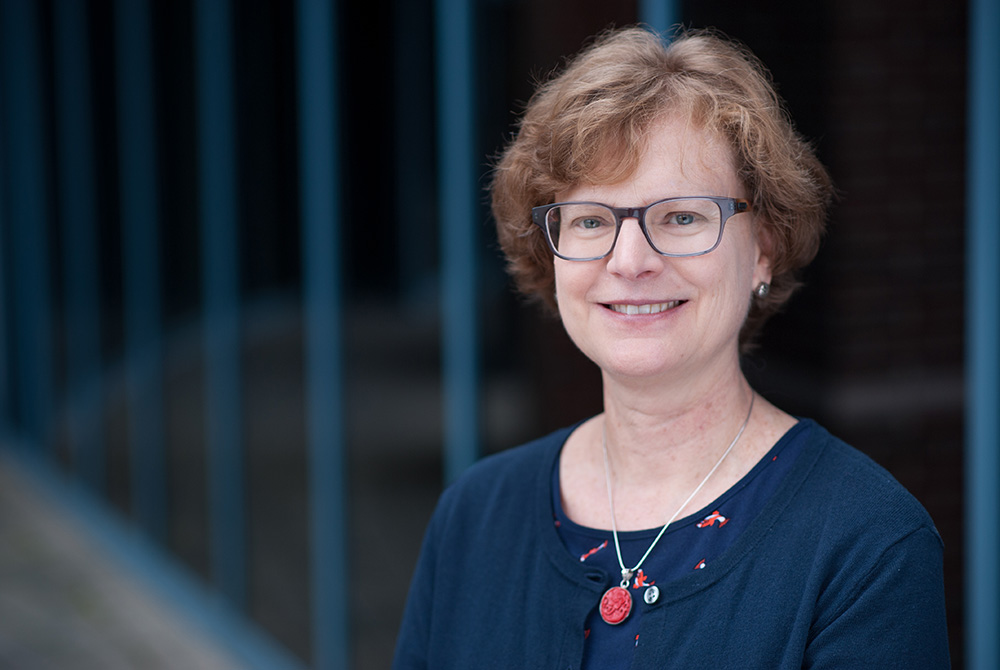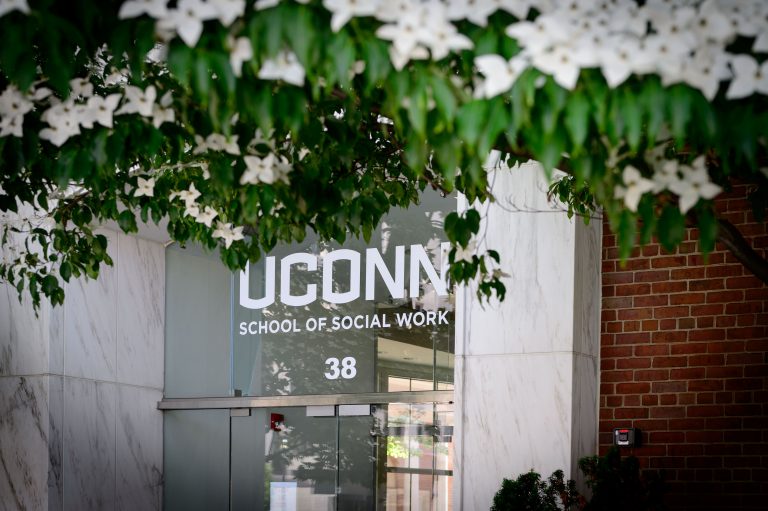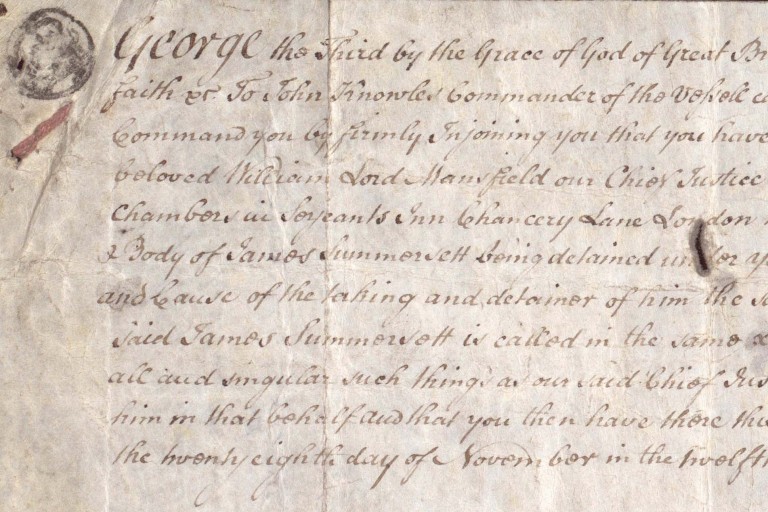The Research Program on Humanitarianism (RPH) brings together UConn faculty from across the humanities and social sciences, as well from the Schools of Social Work and Law, for an ongoing discussion on the history and experience of humanitarian crisis and action, and the analytical and creative engagements that reflect on them.
RPH builds on the core belief that humanistic approaches are vital to understanding the major humanitarian crises facing global society and to human rights discourse more broadly. The program runs two faculty study groups – the RPH Forum and the History of Human Rights and Humanitarianism Colloquium – and sponsors public events open to faculty and students, including the Magnet Scholar Program.
Our Programs
The RPH Forum
A space for interdisciplinary dialogue on issues that require perspectives and expertise from multiple fields. Contributors represent the fields of history, art history, literature, critical theory, philosophy, political theory, anthropology, sociology, and law.
History of Human Rights and Humanitarianism Colloquium
A space for interdisciplinary dialogue on issues that require perspectives and expertise from multiple fields. Contributors represent the fields of history, art history, literature, critical theory, philosophy, political theory, anthropology, sociology, and law.
Magnet Scholar Program
Bringing visiting scholars to UConn annually to lead a series of seminars on current research topics. Past RPH Magnet scholars include:
- Bruce Robbins (Columbia)
- Amanda Anderson (Brown)
- Susan Brison (Dartmouth)
- Ian Baucom (University of Virginia)
- Ariella Azoulay (Brown)
- Timothy Bewes (Brown)
- Elizabeth S. Anker (Cornell)
- Michael Barnett (George Washington University)
- Margaret Moore (Queen’s University, Canada)
- Carolyn Dean (Yale)
Our History & Focus
The program was originally founded in 2005 by Professor Richard Wilson, director of UConn’s Gladstein Family Human Rights Institute, and Professor Richard Brown, a former director of the UConn’s Humanities Institute. The original name was Foundations of Humanitarianism Research and Teaching Program.
Its first research initiative involved tracing the intellectual, social, and cultural origins of the ethos of humanitarianism—the ideology and sensibility that has generated and sustained assertions of human rights for at least the past two centuries. This research project led to the international conference “Humanitarianism and Narratives of Inflicted Suffering” (Fall 2006) and to the publication of Wilson and Brown’s edited volume Humanitarianism and Suffering: The Mobilization of Empathy (Cambridge University Press, 2009).
Since then, under the direction of Professor Alexis Dudden (History), Professor Kerry Bystrom (English), Professor Eleni Coundouriotis (English), and now Professors Sarah Winter (English) and Sara Silverstein (History and Human Rights), the program has broadened its early emphasis on the historical construction of humanitarianism to explore issues in contemporary human rights, humanitarian law, and humanitarian intervention. It further works to assess the future of humanitarianism in relation to rival paradigms that articulate the connections and responsibilities that individuals, states, and transnational groups have to other human beings and the shared world in which they live. Specific threads of research include:
- Shifting meanings of humanitarianism and responsibility in the era of the Responsibility to Protect doctrine
- History of human right campaigns
- Gender in humanitarian and human rights reportage
- Role of mass media and alternative forms of new media in shaping human rights and humanitarian advocacy work
- Politics of refugee crises and refugee camps
Upcoming Events
-
Mar10Cities of Comrades, Comrades of CitiesHomer Babbidge Library2:00 PM
Historian Jacob Remes draws from traditions of labor and critical disaster studies to investigate the role of post-disaster altruism as a form of solidarity in responding to mass suffering and engaging with people most at risk.
-
Mar11Tacit Human Rights? Reflections on China’s Transformation from Global Victim to Global Champion, 1870s-1945Wood Hall11:00 AM
Historian Steffen Rimner explores China’s evolving relationship with human rights through the 19th and 20th centuries, highlighting its changing role in international diplomacy and the foundations of its growth in global power and status.
Past Events
World Literature Is Burning! The Second Russell Tribunal and the Neoliberal Turn in Human Rights
April 23, 2020 | 4:00 - 6:00 PM | The Dodd Center for Human Rights
This lecture by human rights and literature scholar, Joseph R. Slaughter from Columbia University, was cancelled due to Covid-19. This event was originally co-sponsored by the English department.
A Lunchtime Workshop with Carolyn Dean
March 31, 2020 | 12:00 - 2:00 PM | The Dodd Center for Human Rights
A lunch seminar with visiting scholar, Carolyn Dean, Professor of History at Yale University intended to lead a lunchtime seminar that was cancelled due to Covid-19.
The Moral Witness: Trials and Testimony after Genocide
March 30, 2020 | 4:00 - 6:00 PM | The Dodd Center for Human Rights
Visiting Scholar and Professor of History at Yale University, Carolyn Dean, Professor of History, Yale University planned to discuss her book The Moral Witness: Trials and Testimony after Genocide (2019). Unfortunately, this event was cancelled due to Covid-19.
History of Human Rights Reading Group
Fall 2019 - Spring 2020 | Various Times | The Dodd Center for Human Rights
Faculty participants in attendance represented the Departments of Philosophy, History, Literature, Cultures, and Languages, English, and the School of Social Work. We discussed four texts.
- Glenn Mitoma and Sarah Winter led our dialogue on Human Rights and the Care of the Self by Alexandre Lefebvre
- A History of Humanitarianism, 1755-1989: In the Name of Others by Silvia Salvatici’s
- Humanitarianism, War, and Politics: Solferino to Syria and Beyond by Peter Hoffman and Thomas Weiss’
- A History of Global Health: Interventions into the Lives of Others by Randall Packard’s
Homonationalism in Trump Times
March 28, 2019 | The Dodd Center for Human Rights
Visit and lecture by Jasbir. K. Puar, Professor of Women’s and Gender Studies, Rutgers University.
Magnet Scholar Visit
January 31, 2019 | 4:00 - 6:00 PM | The Dodd Center for Human Rights
Political philosopher Margaret Moore from Queen’s University, Canada conducted two seminars. We discussed her highly-regarded book, A Political Theory of Territory (2017), and her recent essay, “The Taking of Territory and the Wrongs of Colonialism.” The seminar discussions with Professor Moore were lively and very productive. Twelve HRI-affiliated faculty participated from UConn departments and programs including: Political Science, History, English, German (LCL), Anthropology, Law, Social Work, Neag School of Education, WGSS/Geography, and Human Rights. After her visit, Professor Moore shared her positive impressions of our research group: “What a great, collegial group of scholars! And I came away with a real appreciation for this inter-disciplinary spirit, which I hope to emulate (and also try to do something like that here [at Queen’s University]).”
War, Memory and Museums: Insights from Mofidul Hoque
November 12, 2018 | The Dodd Center for Human Rights
Visit and lecture by Mofidul Hoque. “War, Memory and Museums: Insights from Mofidul Hoque” (Co-founder of the Liberation War Museum, Bangladesh)
Magnet Scholar Visit
April 2018 | The Dodd Center for Human Rights
Elizabeth S. Anker gave two seminars for the larger interdisciplinary group. A scholar of human rights and literature with a specialization in postcolonial studies, Liz Anker is Associate Professor of English and affiliate faculty in Law at Cornell University. These seminars were well attended and produced valuable discussions of critical controversies surrounding theories of human rights.
Lunch Talk with Binalakshmi Nepram
April 2018 | The Dodd Center for Human Rights
Indian human rights activist and scholar Binalakshmi Nepram, who is the founder of the Manipur Women Gun Survivors Network and Convener of the Global Alliance for Gender Justice, Peace & Equality and currently a visiting professor at Connecticut College. Her account of Manipur women’s collective resistance to kidnapping and conscription of their children by armed groups was very impressive.
History of Human Rights Reading Group
Spring 2018 | Various Times | The Dodd Center for Human Rights
- The Making of International Human Rights: The 1960s, Decolonization, and the Reconstruction of Global Values by Steven L. B. Jensen
- Human Rights in the Shadow of Colonial Violence: The Wars of Independence in Kenya and Algeria by Fabian Klose
Research Program on Humanitarianism Workshop
October 7, 2016 | The Dodd Center for Human Rights
Research Program on Humanitarianism Reading Group
Fall 2016 - Spring 2017 | Various Times | The Dodd Center for Human Rights
- Two discussions with Michael Barnett from George Washington University
- Having a Voice: Autism, Humanitarianism, a documentary by Pooja Rangan
Becoming British: Citizenship & Belonging Post-Brexit
March 21, 2017 | The Dodd Center for Human Rights
Scholar Ismail Einashe joins us to discuss citizenship and belonging in post-Brexit Britain.
What Can Human Rights Films Do?: Precarity and the Politics of Visuality in Joshua Oppenheimer's The Look of Silence
March 31, 2016 | The Dodd Center for Human Rights
We welcome Dr. Alexandra Schultheis Moore to provide insight on the role of film in human rights work.
Research Program on Humanitarianism Reading Group
Fall 2015 - Spring 2016 | Various Times | The Dodd Center for Human Rights
- Bread from Stones: The Middle East and the Making of Modern Humanitarianism by Keith Watenpaugh
- From the War on Poverty to the War on Crime: The Making of Mass Incarceration in America by Elizabeth Hinton
- Writing Women, Writing War by Nadifa Mohamed
- The Historiography of Human Rights in Africa by Charlotte Walter-Said
Magnet Scholar Visit
Fall 2015 - Spring 2016 | Various Times | The Dodd Center for Human Rights
Scholar Thomas Keenan to discussed Theories of Evidence at three events throughout the academic year.
What Kinds of Justice do Colombians Want from the Peace Process?
March 12, 2015 | The Dodd Center for Human Rights
Dr. Ryan Carlin shares what he believes Columbians desire from the peace process.
Clan Cleansing in Somalia: Coming into Speech and Writing History in the Aftermath
March 31, 2015 | The Dodd Center for Human Rights
We welcome scholar Lidwien E. Kapteijns who talked about clan cleansing in Somalia.
Reading and Writing War in a Sentimental Age
September 29, 2014 | The Dodd Center for Human Rights
Dr. Elizabeth Samet discusses her experiences on reading about writing about war.
Portraiture and Its Uncertainties
September 30, 2014 | The Dodd Center for Human Rights
Photographer and academic Avelina Crespo discusses portraiture.
The Empathy Imperative: Feeling with Others in the Humanities Classroom
October 16, 2014 | The Dodd Center for Human Rights
Dr. Meghan Marie Hammond, author or Rethinking Empathy through Literature talks about feeling with others when in a humanities classroom.
Discipline and Care: Health Rights in a U.S. Women’s Jail
April 9, 2013 | 5:00 - 6:30 PM | The Dodd Center for Human Rights
Medical anthropologist and obstetrician-gynecologist Dr. Carolyn Sufrin joined us to discuss women's health rights in U.S. jails.
Women Behind Bars: Film Screening and Panel
April 10, 2013 | 4:00 - 6:00 PM | The Dodd Center for Human Rights
We held a film screening of Women Behind Bars and a panel discussion afterward.
Incarcerated Women and Reproductive Health Care: Opportunities and Challenges for a Vulnerable Population
April 11, 2013 | 12:00 - 1:30 PM | The Dodd Center for Human Rights
Medical anthropologist and obstetrician-gynecologist Dr. Carolyn Sufrin talks about the reproductive health care for incarcerated women.
Moral Progress – Again: Harm Reduction and the Repetition of the State in Human Rights Practices
April 22, 2013 | 12:00 - 1:30 PM | The Dodd Center for Human Rights
Anthropologist of bioethics, Dr. Jarrett Zigon, talked about harm reduction in the context of State and Human Rights repetitive practices.
Afghanistan in the Vortex: Humanitarianism in Question
April 2011 | The Dodd Center for Human Rights
We held a roundtable discussion with policy analysts, reporters, and practitioners.
The Arts and Human Rights in Latin America: Perspectives from Marcelo Brodsky and Alfredo Jaar
March 2010 | The Dodd Center for Human Rights
A public presentation by two of the foremost Latin American artists, Marcelo Brodsky and Alfredo Jaar.
Human Trafficking in the Post-Armenian Genocide Middle East and the Dilemmas of Modern Humanitarianism
March 15, 2010 | 4:00 - 5:30 PM |Homer Babbidge Library, Class of '47 Room
Drawn from Professor Keith Watenpaugh’s forthcoming book, Bread from Stone: The Middle East and the Making of Modern Humanitarianism, this talk examines the League of Nations’ efforts on behalf of displaced Armenian women and children in the early post-World War I period.
Of Veils and Mourning: Fazal Sheikh's Widowed Images
February 25, 2009 | 5:00 - 6:30 PM | The Dodd Center for Human Rights
Dr. Eduardo Cadava joins us from the English and Comparative Literature Department at Princeton University. Fazal Sheikh is a human rights artist/activist, whose works have dealt with topics ranging from the experience of refugees from Somalia, Afghanistan and Sudan to the hazards facing Mexican immigrants in the USA and gender discrimination in India.
In the Balance: Humanitarianism and Responsibility
October 10-12, 2008 | Various Times| The Dodd Center for Human Rights
The central aim of this conference is to think through the rapidly expanding body of scholarship on humanitarianism – both as a discourse and practice – beyond its longtime amalgamated human rights framework. We hope to better understand the concept of humanitarianism as it is currently deployed around the globe, and to assess its future as a guiding political principle for behavior on the individual, state, and transnational levels. Our complementary focus on responsibility leads us to interrogate how humanitarianism defines obligation towards the other, to consider the effects of such definitions – including the limitations they impose – and to raise problems and possibilities for alternative conceptions of the ties that bind humans together. Papers from this conference and more recent responses to the question of humanitarianism and responsibility were collated for a special edition of the Journal of Human Rights, co-edited by Kerry Bystrom and Glenn Mitoma.
Christopher Gunness Lecture and Pentecost Performance
December 6, 2007 | 4:00 - 7:30 PM | Jorgensen Gallery
With a co-sponsorship from the Connecticut Repertory Theatre, Christopher Gunness, spokesperson for the UN Relief Works Agency for Palestine Refugees in the Near East, will lecture on “Chaos, Refugees, and Gaza Today." This is followed by a performance of the play, Pentecost, written by Tony Award-winning playwright David Edgar.
Humanitarianism and Narratives of Inflicted Suffering
October 13-15, 2006 | Various Times | The Dodd Center for Human Rights
This international conference will analyze humanitarian responses to private and public narratives of politicized suffering that has been inflicted by states, private political groups and also by more structural causes such as apartheid, colonialism, and social conflict. The main themes of this conference are: first, to understand the character, form and voice of the narratives themselves; and second, to explain how and why some narratives of suffering become part of political movements of solidarity, whereas others do not. A collection of papers from this conference was published as an edited volume by Richard A. Wilson and Richard D. Brown, Humanitarianism and Suffering: The Mobilization of Empathy.
News
‘We originally conceived of this as a study that extends into Canada, because Canada is the global leader of these community sponsorship initiatives’
“The photographs connect us closer to the experiences of migrants transiting through Panama: shoes laying across the migratory reception center, two children under a tent sponsored by U.S. and E.U. aid, a Bible drying under the sun, children playing in the river, and border officials’ increasing presence in Darién.”
Habeas corpus is more than just a protection against imprisonment, says Sarah Winter in research supported by the National Endowment for the Humanities.
Leadership

Sara Silverstein
Co-Director, Research Program on Humanitarianism
Assistant Professor, History & Human Rights

Sarah Winter
Co-Director, Research Program on Humanitarianism
Professor, English


